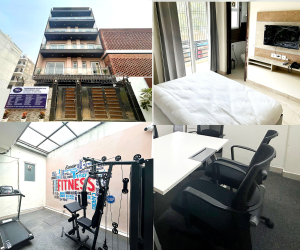Do you know anybody who seems self-centered and seeks attention and appreciation all the time? Perhaps he or she might have Narcissistic Personality Disorder, NPD. According to the latest studies, it affects around 1% of the global population. However, minimal awareness and access to proper treatment exist in India, mainly because of the social stigma attached to mental health issues. Early intervention with credible mental health hospitals or rehabilitation centers will immensely help in the proper management of the disorder.
This blog aims to shed light on NPD, its symptoms, and how professional care can transform lives. If you’re searching for “psychiatrists near me” or “mental hospital near me,” read on to discover more.
What is Narcissistic Personality Disorder?
Narcissistic Personality Disorder is an illness characterized by a pervasive pattern of grandiosity, an excessive need for admiration, and the lack of feeling for others’ problems. Such a condition most often starts early in adulthood, interfering with almost every aspect of life, such as relationships or careers.
Key Characteristics:
- Grandiosity: An exaggerated feeling of one’s importance. For instance, someone with NPD may constantly exaggerate his work when their contributions are minimal, hoping that others will admire them unconditionally.
- Need for Admiration: A craving to be admired by others. For instance, a person with NPD might keep posting on social media in order to receive likes and comments and then get offended when he doesn’t get what he is looking for.
- Empathy Deficiency: Inability to understand or appreciate others’ feelings. For instance, someone who experienced NPD may fail to comfort a sorrowful friend since they redirect the conversation towards themselves or their problems instead of trying to listen and address the sorrow of the other.
In Indian families, where family bonds are very strong, these characteristics can cause a lot of disturbance in the harmony of the family, and it becomes difficult to maintain relationships. For instance, a person with NPD may dominate the conversations during family gatherings or belittle others’ achievements, which causes strained interactions.
Recognizing Narcissistic Personality Traits
Knowledge of the symptoms of NPD is essential to getting help. Here are some common signs:
Inflated Self-Worth
People with NPD tend to overestimate their importance. For example, they can demand special treatment at work or home and assume that their needs are superior to others’.
Compulsive Need for Affirmation
They require more praise than what is warranted. They may feel offended when it is not forthcoming. For example, a coworker experienced from NPD can feel slighted if their input in a project is not recognized.
Lack of empathy
Empathy deficiency often manifests as insensitivity to others’ emotions. For example, they might dismiss a friend’s struggles, focusing instead on their issues.
Manipulative Behaviour
People with NPD might turn to manipulation to reach their objectives—for example, exaggerating their own skills or denigrating others. This behavior is often addressed during therapy in psychiatric hospitals or rehab centers.
Envy and Resentment
They might develop an envy of others’ prosperity but will subdue their vulnerability in the background. They are aggressive towards individuals at the individual and professional levels.
Treatment of NPD
In this disorder, the approach toward treatment involves correct diagnosis, therapy, and after-care treatment. Therapists or counselors from Merlin Health Rehabilitation Center can assist individuals facing various challenges. Typically, a course of treatment may involve:
Diagnosis
A licensed psychiatrist will diagnose the symptoms. Most patients initially come for other problems like depression or anxiety, which often coexist with NPD.
Counseling
Counseling is a mainstay of NPD treatment. CBT can be used to teach the patient to recognize and alter maladaptive thinking. Family therapy can also help repair relationships that have been strained due to the NPD, a common occurrence in close-knit Indian families.
Rehabilitation Centers
For more chronic conditions, residential rehabilitation programs are made available in rehabilitation centers near me to structure the recovery process. These programs emphasize self-awareness, emotional regulation, and self-esteem building.
Aftercare
After treatment, a follow-up appointment with a psychiatrist or participation in support groups will help prevent relapse. Most patients need mindfulness exercises, such as yoga, an ancient Indian method for mental health improvement.
Why Get Professional Treatment?
In India, stigma is still attached to mental health and is one of the main reasons for people not reaching out in time. But care from a specialized mental health hospital or psychiatric ward near me brings in a wonderful change. For example, facilities like Merlin Health’s rehabilitation centers are tailored for culturally sensitive care with evidence-based practices combined with holistic approaches like meditation and Ayurveda.
Conclusion
Understanding and treating Narcissistic Personality Disorder (NPD) might lead the way to growing healthier relationships while figuring out personal growth. So if you or a loved one who has to deal with narcissistic personality disorder would go to the professionals, do not hesitate to contact reputable institutions like Merlin Health’s mental care hospital. Timely intervention, the right therapy, and continuous help might lead one to reclaim one’s life and form relevant relationships.
So start today by searching “mental hospital near me” or “rehab centers near me.” Then, talk to a specialist about better ways to approach the future.
FAQ Section
Q1. What are the common signs of Narcissistic Personality Disorder?
A1. Common symptoms are an exaggerated feeling of self-importance, need for constant praise, lack of empathy, and manipulative actions, and being unable to handle criticism.
Q2. How is NPD diagnosed?
A2. A certified psychiatrist diagnoses the symptoms by conducting psychological tests and interviews.
Q3. Do any treatments have a positive outcome for NPD?
A3. Yes, therapy such as CBT, family counseling, and residential programs at rehab centers is effective in handling NPD.
Q4. What is the role of aftercare in the recovery process?
A4. Aftercare allows for long-term success as there are recurrent issues that need to be addressed with emotional support.
Q5. Can traditional practice help in controlling NPD?
A5. Indeed, practices like yoga and meditation rooted in Indian tradition can supplement the modern therapy system for wholesome recovery.








